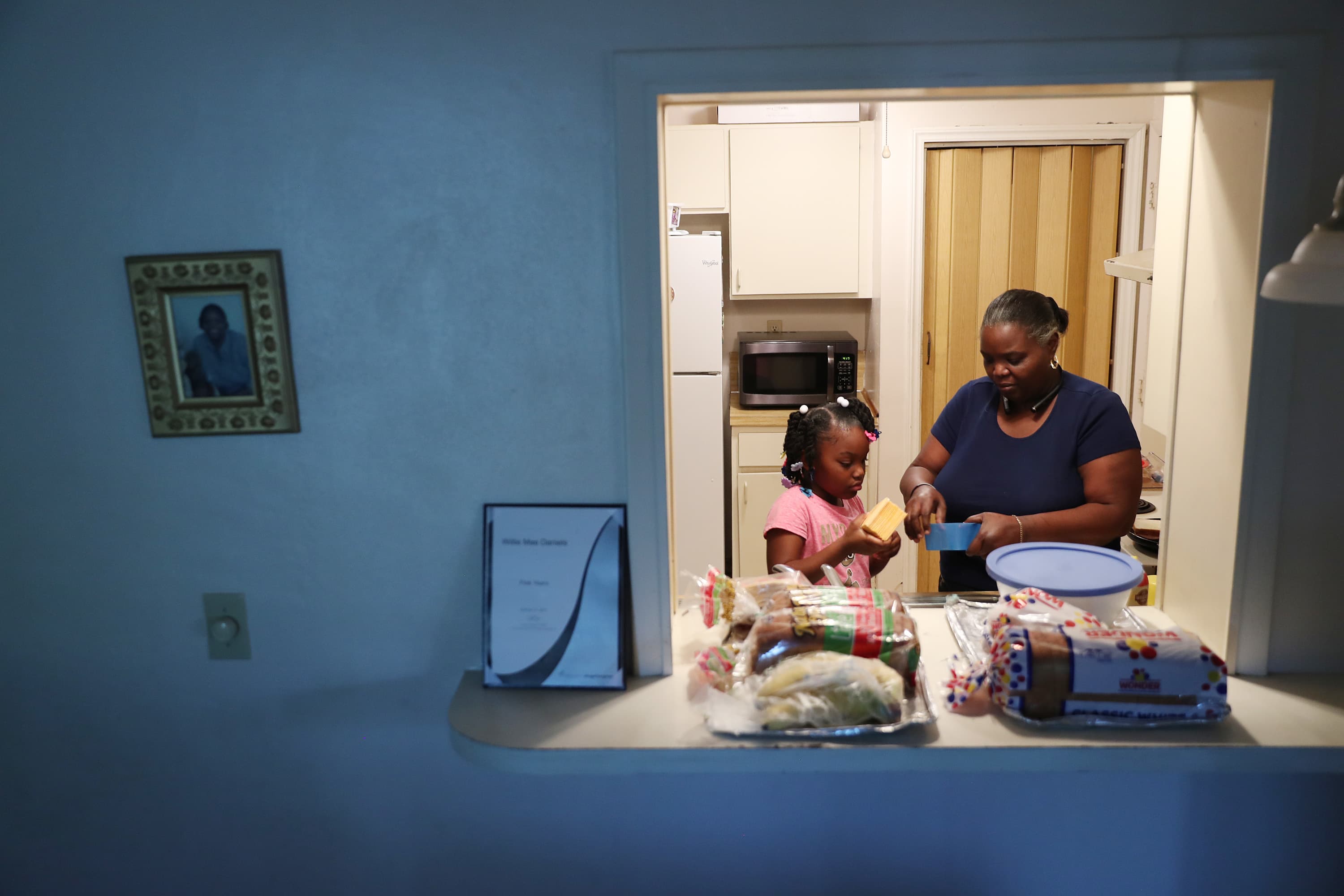Courtney Davis
Source: Courtney Davis
In a few weeks, Courtney Davis will give birth to her first child, a son, Bentli Jaymes. In the meantime, she’s afraid that she won’t have a home to bring him back to.
“My biggest concern is becoming homeless right now,” Davis, 23, said.
Without an extension of a federal unemployment benefit, the single mother will have only her weekly state check from Georgia to rely on: $158. That payment isn’t enough to even cover the rent on her one-bedroom apartment. She doesn’t know how she’s going to afford diapers or formula for her son, either.
Before the pandemic, Davis worked as a server at the Waffle House in Macon. In April, her hours dried up.
More from Personal Finance:
Unemployed and eligible for Social Security? What you need to know
More than half of Americans can’t pass a basic quiz on Social Security
How the coronavirus pandemic is shaking retirement confidence
“I’m so ready to go back to work, but the pandemic isn’t slowing down at all,” Davis said. “And I’m concerned about working with people.
“I don’t want to catch it and bring it home to my newborn,” she added. “I don’t know what I’m going to do.
“It’s very, very scary.”
Some 30 million Americans were collecting the $600 federal unemployment boost until the end of last month, when they expired. Democrats and Republicans are deeply divided over what to replace those checks with.
Democrats want to extend the $600 weekly checks until at least the end of the year. In Republicans’ proposal for the next coronavirus relief package, a $1 trillion plan called the HEALS Act, those weekly benefits would be slashed to $200 through September. After that, states would move to a system in which state and federal benefits combined would replace 70% of a workers’ previous income.
But no compromise has been reached yet on Capitol Hill.
“If it goes on, it’s a real problem,” said Chad Stone, chief economist at the Center on Budget and Policy Priorities. “That $600 benefit was an enormous lifeline for people.”
Experts have said people can’t survive on their state unemployment benefits alone.
Eating rice all month
Jad Kamal, 36, of New York, lost his job in March.
Source: Jad Kamal
The typical state check stood at around $333 a week in April, but dipped as low as $100 in Oklahoma. The minimum benefits in each state would leave people in an even direr situation. For example, people in Hawaii can get as little as $5 a week, or just $15 in Connecticut.
Around the same time that the $600 boost expired, so did the federal moratorium on evictions. The Urban Institute estimated that provision covered nearly 30% of the country’s rental units. And most of the statewide eviction moratoriums are winding down, with proceedings resuming in over 30 states. By one estimate, as many as 40 million Americans could be evicted during the public health crisis.
Jad Kamal, who was laid off from his job as a sommelier at Lupa, an Italian restaurant in Manhattan in March, said he won’t be able to continuing paying his rent with solely his state benefit of around $430 a week.
“If I do it’s because I ate rice all month,” he said. “It’s poverty, more or less.”
Up until now, the $600 weekly boost allowed him to maintain his previous standard of living.
He said he wants a job, but doesn’t know when it will be safe to return to selling wine to customers in a restaurant. His previous employer hasn’t invited him back.
“I want to be out there working, having a sense of purpose,” Kamal said, “but we’re dealing with a global pandemic that’s not under control.”
What has it been like for you to lose the $600 weekly check? If you’d like to share your story, please email me at annie.nova@nbcuni.com

